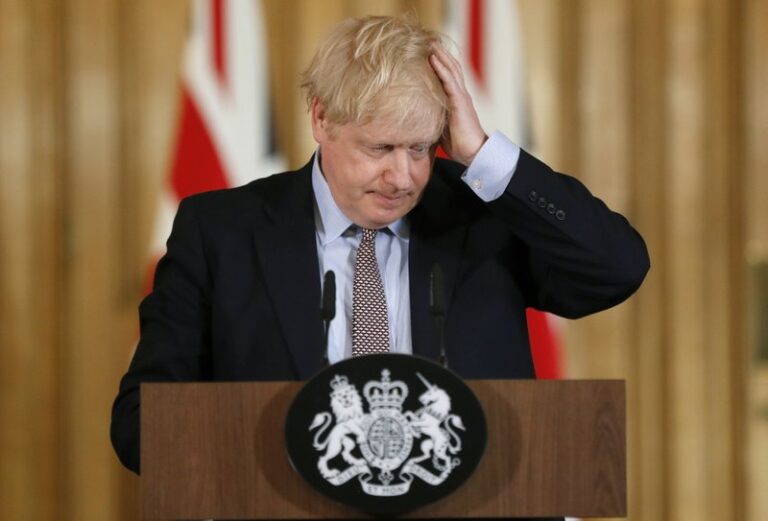
(AP) — Britain bungled its response to the coronavirus the first time around. Now many scientists fear it’s about to do it again.
The virus is on the rise once more in the U.K., which has recorded almost 42,000 COVID-19 deaths, with confirmed daily infections hitting a record-high 6,634 on Thursday, though deaths remain far below their April peak.
The surge has brought new restrictions on daily life, the prospect of a grim winter of mounting deaths — and a feeling of deja vu.
“We didn’t react quick enough in March,” epidemiologist John Edmunds, a member of the government’s scientific advisory committee, told the BBC. “I think we haven’t learnt from our mistake back then and we’re, unfortunately, about to repeat it.”The U.K. is not alone in seeing a second wave of COVID-19. European countries including France, Spain and the Netherlands are struggling to suppress rising outbreaks while limiting the economic damage.
But Britain’s pandemic response has revealed a roster of weaknesses, including unwieldy government structures, a fraying public health system, poor communication by Prime Minister Boris Johnson’s government and a reluctance to learn from other countries.
“We have to ask why a country with such reputed health and intelligence institutions has been so incapable of combating the COVID pandemic,” Gus O’Donnell, the former head of Britain’s civil service, said Thursday.He said British politicians had “over-promised and under-delivered.”
Like many other countries, apart from Asian nations hit by past outbreaks of the SARS and MERS coronavirus illnesses, Britain was unprepared for the pandemic.
Britain quickly approved a test for COVID-19, but lacked the lab capacity to process those tests. That meant attempts to locate, test and isolate the contacts of every infected person soon foundered.
By the time the government ordered a nationwide lockdown on March 23, the virus was out of control. Supplies of protective equipment to hospitals and nursing homes soon ran dangerously short.
Luca Richeldi, an adviser to the Italian government on COVID-19, told a committee of British lawmakers this week that he was “shocked” at the slow U.K. response while Italy was “living a collective tragedy.”
“I had the impression that in general what was happening in Italy was not really perceived as something that could happen in the U.K.,” he said.
Critics say the government’s insistence on going its own way — epitomized and exacerbated by the U.K.’s departure from the European Union in January — has hobbled its response.
The U.K. spent months trying to develop a contact-tracing smartphone app from scratch before abandoning it and adopting an Apple- and Google-developed system already used in many other countries. The app was launched in England on Thursday — four months late.
There were some successes. Britain’s state-funded health-care system coped; its hospitals weren’t overwhelmed. But that was achieved at the high cost of postponing routine surgeries, appointments and screening for cancer and other diseases.





